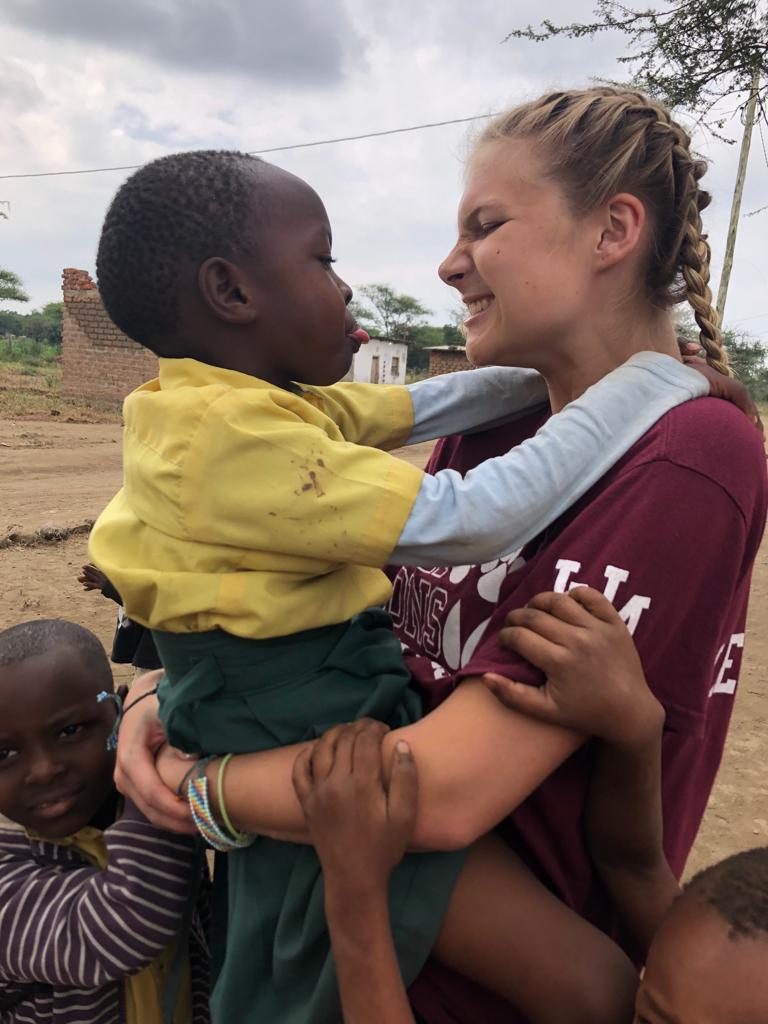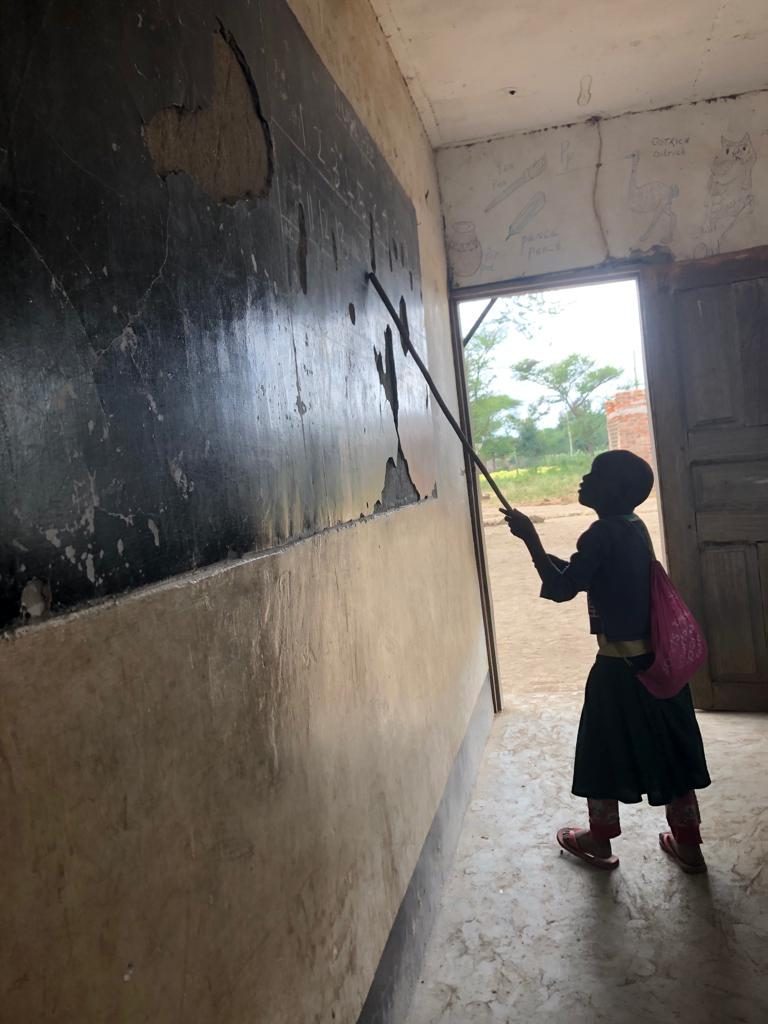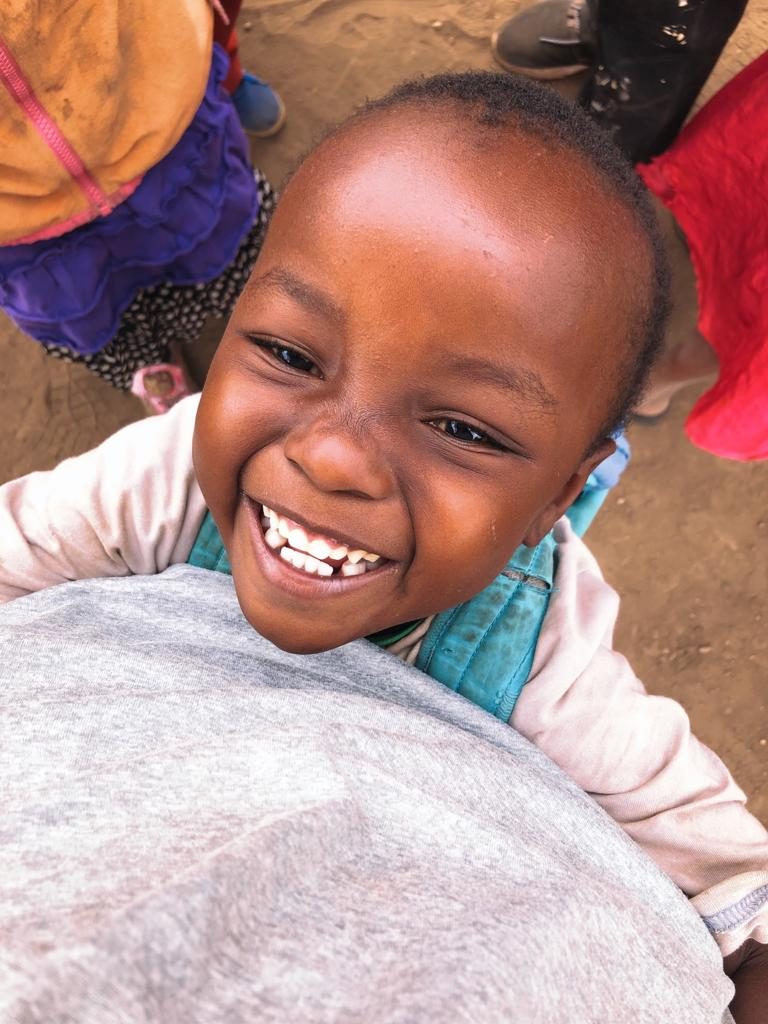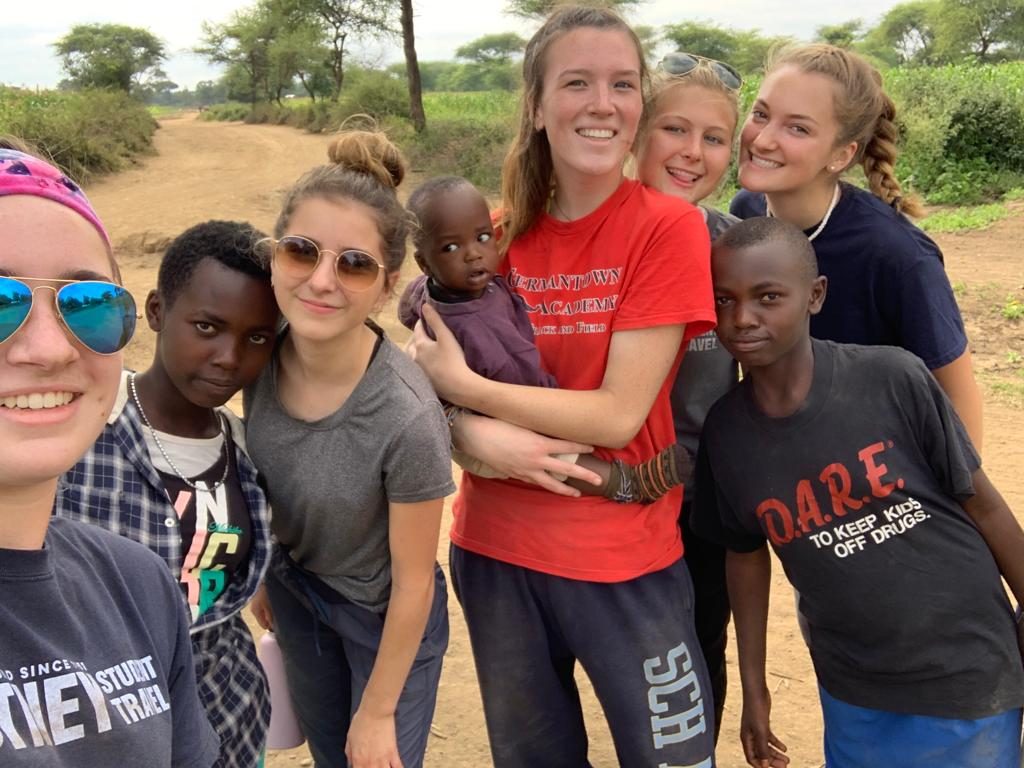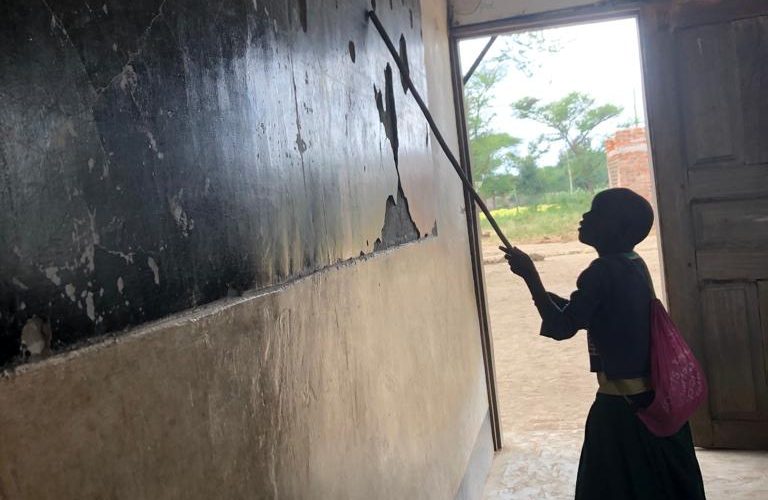This post features student writing.
Hi parents, friends, and family,
Over the course of the 11 days we have been in Maji Moto, two friends and I have completed our independent project. We felt that making meaningful connections with the village children was important to the three of us. We wanted to break the language barrier and create positive memories for us and the children. We decided to teach an English class to five- and six-year-olds in the local school. We taught them popular American children’s songs, animals, and numbers in English. In order to complete this effectively, it was necessary to learn the appropriate amount of Swahili for proper communication of the English words. We made our lesson plan, which included the song “Old McDonald,” along with “Head, Shoulders, Knees, and Toes” in Swahili and English. Even though the objective was to teach the children English, another positive outcome was the knowledge that we received from learning Swahili words like twiga (giraffe), kichwa (head), sema (say). The children enthusiastically shouted the English words back at us and specifically loved when we made animal noises for them to repeat. Besides the fact that they are extremely adorable children, I was very impressed with how well behaved they were in a classroom setting. We also spent time at the preschool with four-year-olds and younger children. We observed as each confident child walked to the front of the classroom and recited numbers in a loud, unwavering voice. Then, the children would proceed to play games where they would hold hands in a circle, singing and dancing. I work at a preschool with similar ages in New Jersey, so I constantly surround myself with children. It was very interesting to see how the children and their actions here in Maji Moto differ from those at home. I’m accustomed to counting the children every time I enter a new room in the preschool at home to ensure no little one is left behind. However, attendance in Maji Moto is much more relaxed. It’s possible that there is a looser emphasis on education and that entering a classroom is more of a choice rather than an obligation. There were children exiting and entering the classroom as our lesson went on. The similarity that I noticed between both the children at home and in Maji Moto was their pure joy, which was evident through their gigantic smiles as they yelled “lions say RAWR,” back at us. Overall, it was an amazing experience to work with the children of this village. I am very grateful for the opportunity to experience a day in the life of these adorable little ones.
— Ella F.
